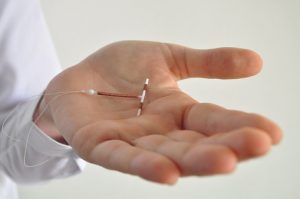
Form of contraception found to protect against cervical cancer
There are many forms of contraceptive available for women, all with varying degrees of effectiveness for the prevention of pregnancy. The intrauterine device or IUD is a small “T-shaped” birth control device that is inserted into a woman’s uterus and is considered one of the most effective forms of birth control currently offered today.
New research suggests that the IUD may do more than preventing unwanted pregnancy. It might also offer protection against cervical cancer, the third most common cancer affecting women worldwide. Continue reading…
Women are complicated beings in more ways than one. About health specifically, women are more complex than men, as they have the ability to carry and bear life. Unfortunately, as with most things, the more moving parts something has, the higher the chance of complications arising. This holds true for the female sex, as they are more likely to suffer from certain conditions like autoimmune disorders and specific cancers, one of which is cervical cancer.
This type of cancer begins in the cells of the cervix—a narrow passage at the lower end of the uterus. While treatable, new research has found that cervical cancer survivors experience various symptoms that last long after the cancer has resolved. Continue reading…
Having bone spurs in the neck or cervical osteophytes can be so painful that it affects a person’s day to day life. While the development of neck bone spurs is generally considered a relatively benign condition occurring in people greater than 60 years old, they may eventually lead to neurological dysfunctions that may cause a range of symptoms.
Bone spurs (osteophytes) commonly form in the neck, shoulder, feet, knees, and fingers. However, when they develop between the C1 through C7 vertebrae of the spine, they can constrict nerve pathways, leading to complications. Continue reading…
Cervical lordosis is a medical term referring to the degree of curvature of the human neck, pinpointing an exaggerated atypical inward curvature of the neck region. This curve is a physically desirable trait for humans to have, as if you were to lose this natural curvature, it could lead to several physical complications.
To fully understand this natural curvature of the neck, it is important to understand some other conditions involving the cervical lordosis. Continue reading…
Posterior cervical lymph nodes are a group of glands located behind the neck, or in the cervical region of the spine. As part of the immune system, the glands contain scavenging white blood cells that fight off infections.
Having swollen cervical lymph nodes, also known as cervical lymphadenopathy, can often be a sign of infection, as the nodes also serve to filter out potentially harmful pathogens and microorganisms from the lymphatic system. Continue reading…